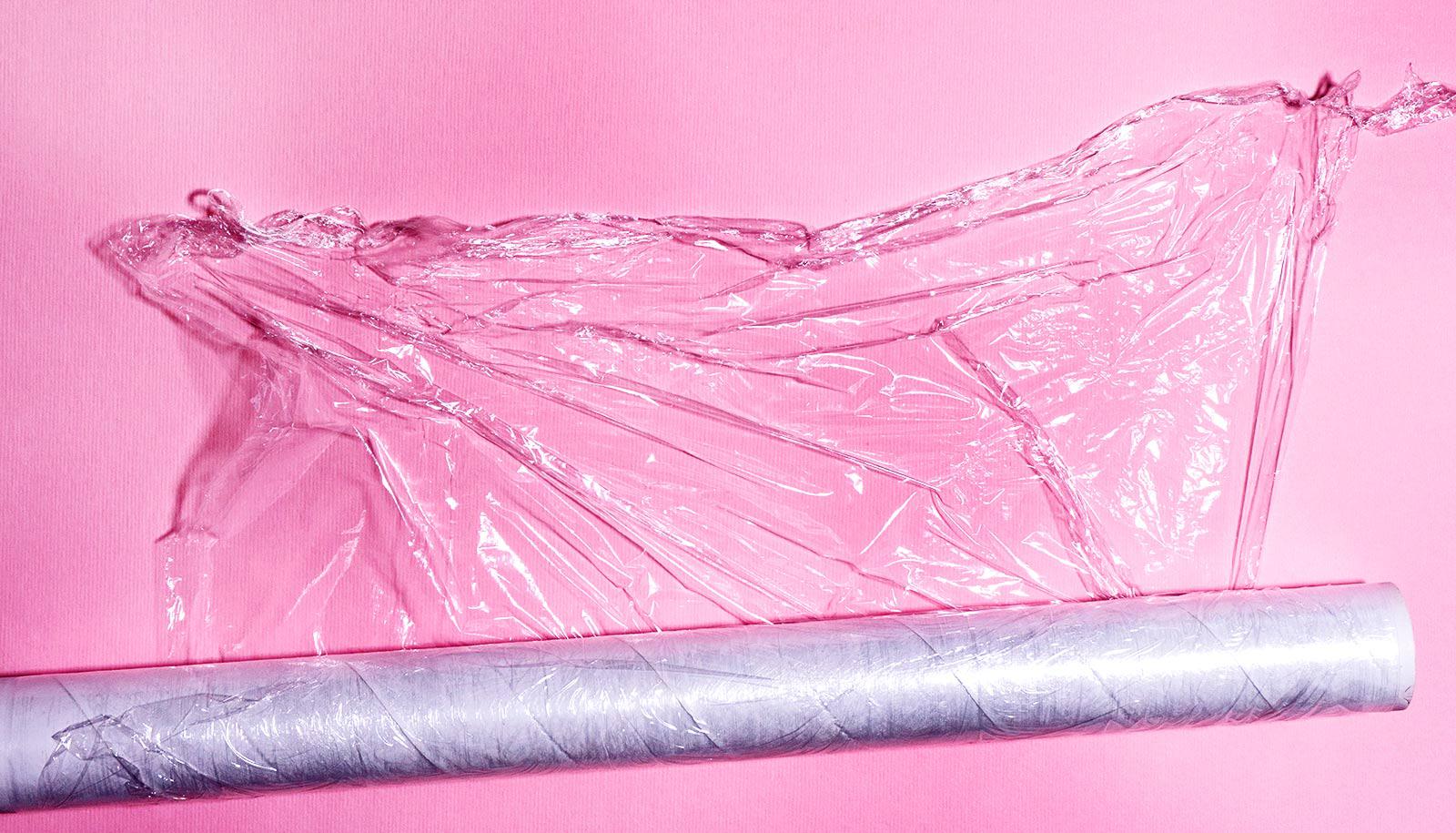UNLIMITED
Spray-on coating could replace plastic wrap

A new biodegradable, plant-based, spray-on coating may offer an environmentally friendly alternative to plastic food wrap and containers, researchers say.
The coating can guard food against pathogenic and spoilage microorganisms and transportation damage.
The scalable process could potentially reduce the adverse environmental impact of plastic food packaging as well as protect human health.
“Over the past 50 to 60 years… we’ve placed 6 billion metric tons of plastic waste into our environment.”
“We knew we needed to get rid of the petroleum-based food packaging that is out there and replace it with something more sustainable, biodegradable, and nontoxic,” says Philip Demokritou, chair in nanoscience and environmental bioengineering at the Rutgers University School of Public Health and Environmental and Occupational Health Sciences Institute, as well as director of the Nanoscience and Advanced Materials Research Center.
“And we asked ourselves at the same time, ‘Can we design food packaging with a functionality to extend shelf life and reduce food waste while enhancing food safety?’ And what we have come up with is a scalable technology, which enables us to turn biopolymers, which can be derived as part of a circular economy from food waste, into smart fibers that can wrap food directly. This is part of new generation, ‘smart’ and ‘green’ food packaging.”
The study in the journal Nature Food describes the new kind of packaging technology, which use the polysaccharide/biopolymer-based fibers.
Like the webs cast by the Marvel comic book character Spider-Man, the stringy material can be spun from a heating device that resembles a hair dryer and “shrink-wrapped” over foods of various shapes and sizes, such as an avocado or a sirloin steak.
The resulting material that encases food products is sturdy enough to protect bruising and contains antimicrobial agents to fight spoilage and pathogenic microorganisms such as E. coli and listeria.
The research paper includes a description of the technology called focused rotary jet spinning, a process by which the biopolymer is produced. Quantitative assessments show the coating extended the shelf life of avocados by 50%. The coating can be rinsed off with water and degrades in soil within three days, according to the study.
The new packaging is targeted at addressing a serious environmental issue: the proliferation of petroleum-based plastic products in the waste stream. Efforts to curb the use of plastic, such as legislation in states like New Jersey to eliminate plastic shopping bag distribution at grocery stores, can help, Demokritou says. But he wanted to do more.
“I’m not against plastics,” Demokritou says. “I’m against petroleum-based plastics that we keep throwing out there because only a tiny portion of them can be recycled. Over the past 50 to 60 years, during the Age of Plastic, we’ve placed 6 billion metric tons of plastic waste into our environment. They are out there degrading slowly. And these tiny fragments are making it into the water we drink, the food we eat, and the air we breathe.”
Rising evidence from Demokritou’s research team and others point to potential health implications.
The paper describes how the new fibers encapsulating the food are laced with naturally occurring antimicrobial ingredients—thyme oil, citric acid, and nisin.
Researchers in the Demokritou lab can program such smart materials to act as sensors, activating and destroying bacterial strains to ensure food will arrive untainted. This will address growing concern over food-borne illnesses as well as lower the incidence of food spoilage, Demokritou says.
Additional coauthors are from Harvard University and Rutgers. The Harvard-Nanyang Technological University/Singapore Sustainable Nanotechnology Initiative funded the work.
Source: Rutgers University
The post Spray-on coating could replace plastic wrap appeared first on Futurity.